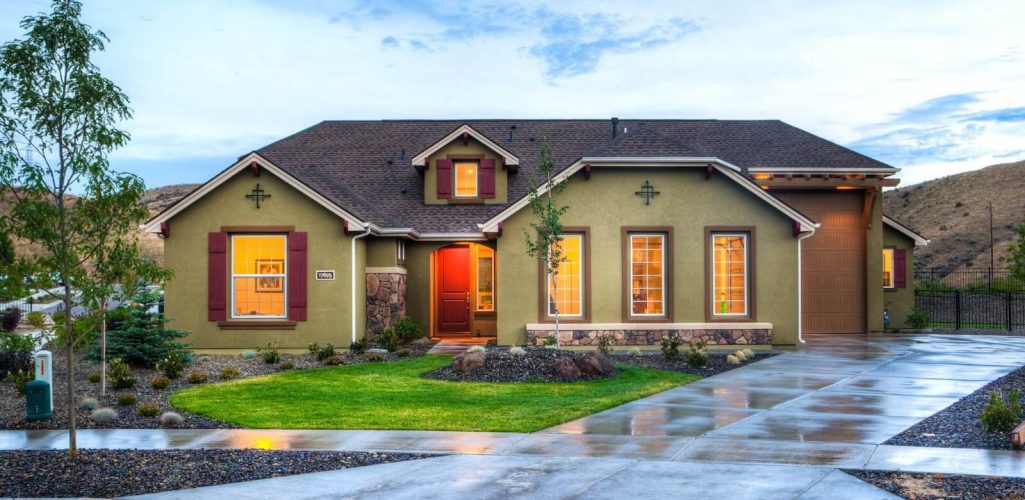For homeowners in Tulsa, Oklahoma, protecting their most significant investment is a top priority. Home insurance provides financial security and peace of mind in the face of unexpected events like natural disasters, theft, or accidents. However, with various insurance providers offering different coverage options and premiums, finding the best home insurance deal can be overwhelming. This blog aims to guide homeowners in Tulsa, OK, through the process of comparing home insurance quotes and finding the most suitable and cost-effective coverage.
Understand Your Coverage Needs
Understanding your coverage needs is a crucial first step when shopping for home insurance. Your home is likely one of the most significant investments you’ll ever make, so having the right insurance coverage is essential to protect it from potential risks and unforeseen events. Here are some key points to consider when evaluating your coverage needs:
Home Value: Assess the value of your home and its structures accurately. This value will determine the amount of coverage you need to rebuild your home in the event of a total loss. Remember that the cost of rebuilding your home might not be the same as its market value, so consult with a professional if necessary.
Personal Belongings: Take inventory of your personal belongings and estimate their total value. This includes furniture, electronics, clothing, jewelry, and other possessions. A comprehensive home insurance policy should cover these items in case of theft, fire, or other covered perils.
Additional Structures: If you have any additional structures on your property, such as a detached garage, shed, or fence, consider their value and whether you want them included in your insurance coverage. Most policies include coverage for additional structures, but it’s essential to verify the extent of this coverage.
Liability Protection: Home insurance also provides liability protection in case someone is injured on your property, and you are found legally responsible. Make sure your policy includes adequate personal liability coverage to protect your assets and finances in the event of a lawsuit.
Natural Disasters: In regions prone to natural disasters like tornadoes, floods, or earthquakes, standard home insurance policies may not cover these events. You may need to purchase additional coverage specific to these risks.
Personal Preferences: Consider any unique circumstances or preferences that might require additional coverage. For instance, if you have valuable artwork or collectibles, you may need to add a rider or endorsement to your policy to cover their full value.
Deductibles and Premiums: When determining your coverage needs, think about your financial ability to handle a deductible in case of a claim. Higher deductibles generally lead to lower premiums, but it’s crucial to strike a balance between affordability and adequate coverage.
By taking the time to understand your coverage needs, you can make informed decisions when comparing home insurance quotes. Adequate coverage will offer you peace of mind, knowing that your home and belongings are protected in the face of unexpected events. Review your coverage periodically and make adjustments as necessary to keep your policy up to date with any changes in your home or lifestyle.
 Compare Coverage Options
Compare Coverage Options
When comparing home insurance quotes, one of the most critical aspects to consider is the coverage options offered by different insurance providers. The right coverage can make a significant difference in protecting your home and belongings from potential risks. Here are some essential points to keep in mind when comparing coverage options:
Standard Coverage: Most home insurance policies offer standard coverage for the structure of your home, personal belongings, and liability protection. However, the specific limits and terms of coverage can vary between insurers. Review these standard coverages carefully to ensure they meet your needs.
Personal Property Coverage: Check the coverage limits for personal belongings. Some policies may have caps on specific categories of items, such as jewelry, electronics, or art. If you have valuable items that exceed these limits, consider adding additional coverage or a rider to adequately protect them.
Additional Living Expenses: In case your home becomes temporarily uninhabitable due to a covered loss, additional living expenses coverage can provide financial assistance for living away from home during repairs. Compare the limits and terms of this coverage to ensure it is sufficient for your needs.
Liability Protection: Liability coverage is vital to protect you financially in case someone is injured on your property and you are found legally responsible. Ensure the policy’s liability limits are adequate to safeguard your assets in case of a lawsuit.
Natural Disasters: Depending on your location, you may need additional coverage for natural disasters like floods, earthquakes, or hurricanes. Standard home insurance policies may not include coverage for these events, so it’s crucial to evaluate and compare any specific endorsements or riders for such risks.
Water Damage: Water damage can result from various sources, such as burst pipes or sewer backups. Check whether the policy covers water damage and to what extent.
Personal Liability Umbrella: For extra protection beyond the limits of your standard liability coverage, consider a personal liability umbrella policy. This coverage provides an additional layer of liability protection and can be more cost-effective than increasing the liability limits on your home insurance policy.
Replacement Cost vs. Actual Cash Value: Understand whether the policy offers replacement cost or actual cash value coverage for your home and belongings. Replacement cost coverage reimburses you for the full cost of replacing items, while actual cash value coverage factors in depreciation, resulting in lower payouts.
Additional Coverage Options: Some insurers may offer optional coverage options, such as identity theft protection, equipment breakdown coverage, or green home coverage. Evaluate the relevance and value of these additional options for your specific needs.
By carefully comparing coverage options from different insurance providers, you can make an informed decision that aligns with your requirements and budget. It’s essential to strike a balance between affordability and comprehensive coverage to ensure your home and belongings are adequately protected. Don’t hesitate to ask questions and seek clarification from insurance representatives to fully understand the terms and conditions of the coverage being offered.
Understand Policy Limits and Exclusions
Understanding policy limits and exclusions is crucial when evaluating home insurance quotes. Policy limits refer to the maximum amount an insurance company will pay for a covered loss, while exclusions are events or circumstances that are not covered by the policy. Familiarizing yourself with these details will ensure that you select a policy that provides adequate coverage for your needs.
Policy Limits: Each component of your home insurance policy has its specific limit. These components typically include dwelling coverage (for the structure of your home), personal property coverage (for your belongings), other structures coverage (for structures not attached to your home, like a detached garage), and liability coverage. Review these limits carefully to make sure they align with the estimated value of your home and possessions.
Dwelling Coverage: The dwelling coverage limit should reflect the cost to rebuild your home in case of a total loss, such as from a fire or natural disaster. Be cautious not to underinsured your dwelling, as it may leave you with significant out-of-pocket expenses in the event of a claim.
Personal Property Coverage: Verify the limit for personal property coverage to ensure it adequately protects your belongings. If you own high-value items, such as jewelry, art, or electronics, consider purchasing additional coverage (a rider or endorsement) to cover these items fully.
Other Structures Coverage: If you have structures on your property separate from your main dwelling, such as a shed or fence, verify the coverage limit for these structures. Ensure it’s sufficient to rebuild or repair them if necessary.
Liability Coverage: Liability coverage protects you if someone is injured on your property or if you accidentally cause damage to someone else’s property. Ensure that your liability coverage limit is high enough to protect your assets and savings in the event of a lawsuit.
Exclusions: Exclusions are the events or circumstances specifically not covered by your home insurance policy. Common exclusions may include damage caused by floods, earthquakes, acts of war, or intentional acts. Review the list of exclusions to understand what risks you might be exposed to and consider purchasing additional coverage for those risks if needed.
Special Endorsements: Some exclusions may be covered through special endorsements or riders. For example, if you live in an area prone to floods, you can typically purchase a separate flood insurance policy to supplement your standard home insurance coverage.
Understanding policy limits and exclusions helps you make informed decisions when comparing home insurance quotes. By ensuring that your policy covers your specific needs and potential risks, you can have peace of mind knowing that your home and belongings are adequately protected. Always review and update your policy as needed, especially if you make significant changes to your home or acquire valuable items that may require additional coverage.
Comparing home insurance quotes in Tulsa, OK, is a critical step in safeguarding your home and assets against unforeseen events. By understanding your coverage needs, researching providers, and evaluating policy options, you can find the best deal that offers comprehensive protection at an affordable price. Utilize online tools, seek expert advice if needed, and prioritize excellent customer service and claims processing when making your decision. Remember to review and update your policy regularly to keep your coverage up to date. By following these tips, homeowners in Tulsa, OK, can confidently select a home insurance policy that meets their unique requirements and provides them with peace of mind for the future.
Call G&G today to get a free quote on your home insurance to get the best coverage at the best price!


